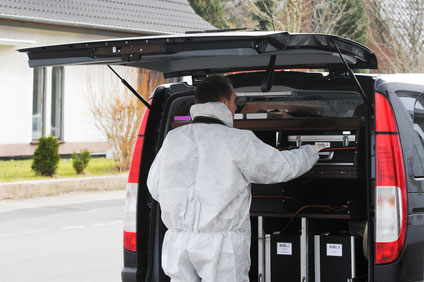A scenario that does not take place only a crime thriller, but daily in police stations or in courtrooms: An injured person reports someone for a criminal offense or wishes to sue them, has no chance of successfully carrying this out due to lack of or insufficient evidence.
The tenant who wants to enforce their immediate termination of an apartment or house because of the abusive and unauthorized intrusion of the landlord into the apartment. The boss who knows very well that only a certain employee could regularly steal money from the till. Or the young man who recognized the perpetrators who robbed him on his way home.

There are numerous cases in which a victim has seen or can name the perpetrator, but still cannot initiate prosecution. The frustration of those affected, their helplessness and, in some cases, the fear of a renewed assault run deep. Giving up, however, is no more a helpful than grumbling against supposedly incompetent or unwilling public servants. The only sensible step is in the direction of securing sufficient evidence.
As a professional detective agency with extensive experience and a high level of investigative competence in the field of securing evidence, we can only advise against attempting to produce evidence on their own.
In addition to lacking emotional distance from the case, which is essential for a successful detection, victims largely lack the knowledge and technical equipment necessary for a successful search. In addition, in almost all cases there is a lack of knowledge of the type and amount of evidence that will be required for the police to intervene or to withstand a legal dispute.
Finally, an urgent warning to anyone thinking of starting an investigation on their own: it is not uncommon for evidence to be destroyed, for example through one’s own fingerprints or the accidental deletion of records. Given that the evidence might have been enough to convict and punish the perpetrator, it is extremely annoying.
Our forensic scientists and detectives are specialists in securing evidence
The professional and successful securing of evidence is part of the performance spectrum of our well-trained and experienced investigators. Our detectives’ extensive investigative skills are complemented by a special talent for finding crucial evidence – a skill that grown over the years through processing hundreds of cases.
The detection methods used depend entirely on the situation of the case at hand. Frequently used methods are the observation of suspects, visual or auditory monitoring as well as the acquisition of footprints, fingerprints or suitable material for a DNA analysis. In the case of extortion; handwriting examination, tracing of anonymous calls and the unmasking of the author of emails can be carried out. In more complicated cases, our team has a large number of highly sensitive surveillance measures. One principle applies to all research methods: the choice of detection means used and the traces and evidence brought to light are completely carefully checked for their usability by the police or in court.
Alone the high emotional involvement of the persons concerned alone is a good reason to turn to a competent detective agency. Victims who turn to our detective agency to secure evidence are often in a state of anger, despair, and helplessness. Either because the police do not investigate a threat, or only as part of a routine check, or because there is a lack of evidence that the desired criminal or civil litigation has not come about.
People in such a disintegrated state run the risk of making mistakes that can never be reversed, even with professional support. Additionally, it is precisely this a emotional instability that encourages people lacking a of sense of wrongdoing or a high level of criminal motivation to continue to face threat s with verbal and physical attacks or blackmail. If the victim decides to lay the problem into professional hands, this is often associated with a good chance of success in the research and with relief and an improved quality of life.
Incidentally, this also applies to case constellations in which evidence has to be sought that the victim is innocent – for example, if he is accused of theft by a malicious person. Here, too, our detectives have special methods at their disposal that allow the wrongly suspected person to be freed from false accusations and, in addition to his punishment, even make the convicted perpetrator liable for damages in numerous cases.


